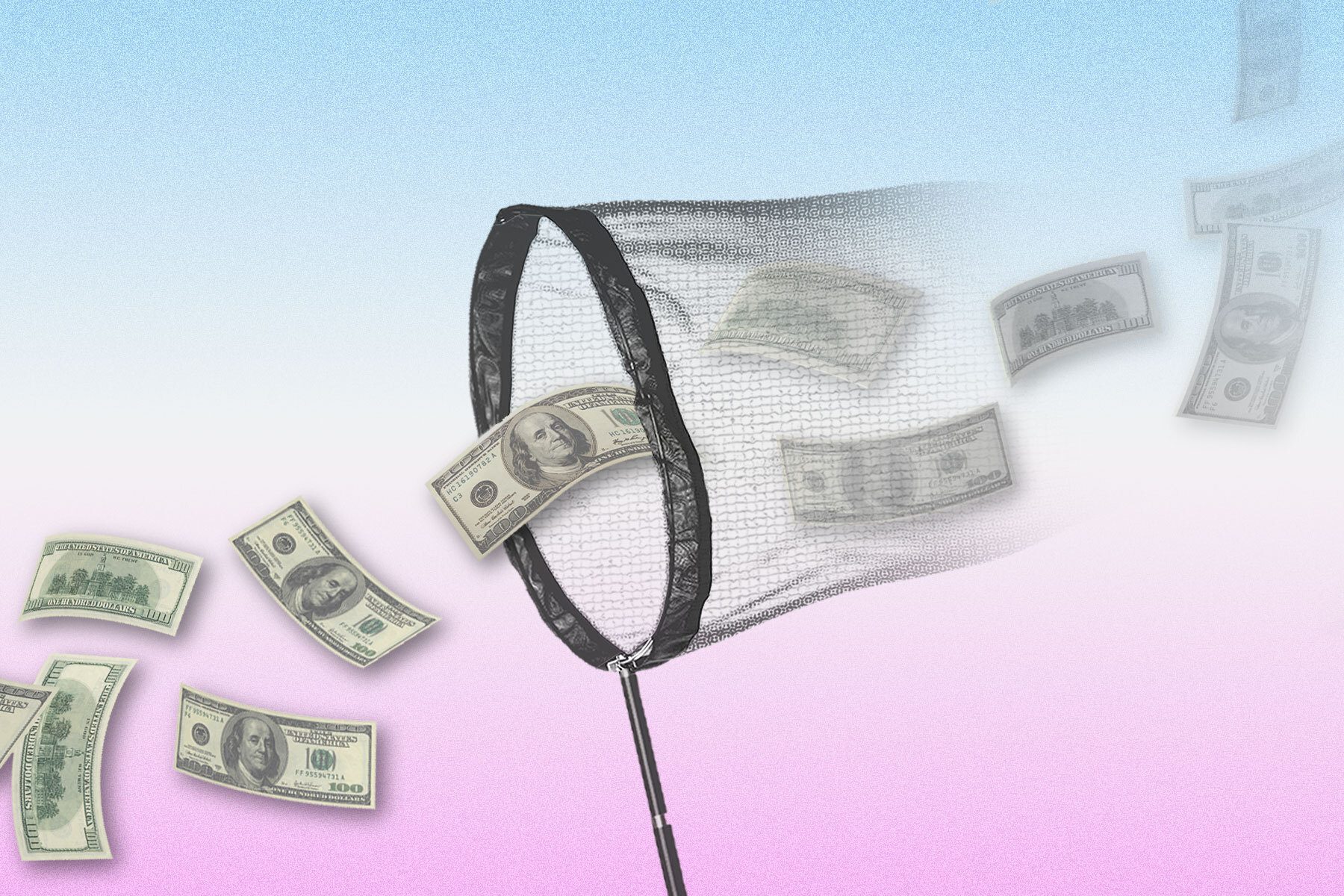Discrimination. Health care costs. A lack of access to financial resources. These factors, and more, combine to keep many transgender and nonbinary people in poverty, studies show. And without deeper changes at a systemic level, the standard tips and tools for debt management offer little help.
“You have to have money to save it,” said Lilianna Reyes, director of youth drop-in services at the Ruth Ellis Center, which provides resources to LGBTQ+ people in Detroit. “Every trans person, especially trans people of color, know it’s going to be difficult to get jobs.”
Bias and stigma are what trans people most often say is keeping them in poverty, said Bianca D.M. Wilson, the senior scholar of public policy at the Williams Institute at the UCLA School of Law. That bias creates barriers to their parents’ resources, or getting a job and having an income, or housing, according to the institute’s research, she said.
Still, even though a lack of basic financial skills doesn’t seem to be the reason trans and gender nonconforming are living in poverty, financial education helps, especially for youth who are just starting to navigate independent life. But to help trans people get out of poverty long-term, financial education needs to be paired with mutual aid networks, supporting trans businesses, and directly giving money to trans people, said AJ Marrero, cofounder of the Coalition for Black Trans Economic Liberation (CBTEL).
To Marrero, trans economic liberation means that trans people are able “to wake up comfortably, safely … and create wealth, to be able to have those things that the American Dream promises.”
“Trans people haven’t even gotten a shot at it,” they said.
The 19th spoke with multiple experts to get advice for trans people dealing with crisis situations — like losing their housing or employment — and to get advice on how to start building financial resources for the future.
I just got laid off from my job. What should I do?
Apply for unemployment as soon as possible, said Elly Bludworth, director of youth housing at the Sexual Minority Youth Assistance League (SMYAL), which provides transitional housing for up to 38 LGBTQ+ young adults in Washington, D.C. Bludworth also suggested asking local LGBTQ+ affirming shelters and social service groups for advice and resources as soon as possible.
“Take a good look at your finances,” she said. “Look at your living situation. Are you in a safe living situation? Are you in a place where you can afford to stay where you’re at?”
It is illegal for employers to fire their workers based solely on their gender identity or sexual orientation under Bostock v. Clayton, a 2020 Supreme Court ruling that placed LGBTQ+ people under the protections of Title VII of the Civil Rights Act.
But for people who believe their employer discriminated against them — employment discrimination was cited by trans men and women as a primary barrier to getting jobs in the Williams Institute’s “Pathway into Poverty” study released last year — there are ways to seek help.
The ACLU encourages people to get in touch with their local branch for legal assistance and to report discrimination. Lambda Legal’s help desk also provides information and resources on LGBTQ+ discrimination but can’t dispense legal advice. People can also file a complaint with the Equal Employment Opportunity Commission if the discrimination took place within the right window of time.
I may be unhoused soon. What should I do?
At least one in five transgender people have been homeless at some point in their lives. LGBTQ+ youth are significantly overrepresented in homeless populations and trans youth are especially vulnerable, as research shows family rejection can set them on a trajectory for economic instability. For recently unhoused trans youth and young adults, avoiding violence and abuse is a top priority, said Neena Beausoleil, director of programs at Lost-n-Found Youth in Atlanta.
“You want to make sure there’s nobody out there, there’s no risks or there’s no one looking for you, and that you’re safe,” she said.
Finding a shelter that understands the needs of LGBTQ+ people is also crucial, she said, where staff can make space for small but important things like helping a trans woman fix her hair and clothing so that she can safely go to work.
Some trans youth also lose access to hormones after becoming homeless, said Pat Reagan, director of development at Lost-n-Found, which works with LGBTQ+ youth from 13 to 25. The shelter works to help them find gender-affirming treatment again, she said.
Calling Covenant House, a homeless shelter network with locations across the country, is another option for someone who needs immediate help, Bludworth said. One strategy to avoid harassment or discrimination at non-LGBTQ+ shelters is to sleep there at night but stay out during the day, she said.
Reyes stressed that struggling and homeless LGBTQ+ folks should be prepared to face a difficult road. Although groups like the Ruth Ellis Center work to help people navigate their personal situation, a lot depends on age, race or ZIP code.
“Sometimes the options are really bleak, and I don’t think that we talk enough about that,” she said.
I can’t get into a shelter right now — I need to sleep on the street or in my car. What should I do?
Some trans people don’t feel safe in non-LGBTQ+ shelters or report being turned away from them. While it’s still best to seek shelter or at least resources from any nearby shelter, Bludworth said, experts offered other ways to stay safe while sleeping in the street or in a car.
In Philadelphia, Marrero urges homeless trans people to contact CBTEL to get a “safety pack” that includes baby wipes and other hygiene products. Keeping clean to avoid appearing homeless can help people stay safe in the long run, gain opportunities and avoid being taken advantage of, they said.
-
More from The 19th
- ‘I don’t sleep very well anymore:’ Many LGBTQ+ people face economic cliff if eviction protections end
- The 19th Explains: What is the Equal Rights Amendment and will it become part of the Constitution?
- Before the Chappelle special, trans employees at Netflix say they were doing the work of HR
They also advised finding a community as soon as possible — ”even if it’s one friend.” Connecting with other LGBTQ+ people can help build a support network. Marrero, who was chronically homeless for most of their life and previously relied on sex work to survive, said that access to community saved their life.
Bludworth advises checking in to a local drop-in center, at least to talk to a staff member about where to shower, get a hot meal, or get medication, even if you don’t feel safe sleeping at that shelter.
People on the street should try to find somewhere where they feel safe from the elements, know a few people, and where they feel like they won’t be attacked, she said.
If someone has to sleep in their car — which is not ideal — it’s important that it is locked and parked in a well-lit area, Bludworth said. Having a plan for where to go to the bathroom, like at a local food pantry or a gym, is also key, as is parking near a hospital for people who have medical needs. She also suggested covering windows for more privacy.
Bludworth speaks from experience: Her family had to leave their apartment when she was a child, and there were times when Bludworth, her infant brother and her younger sister would go without food for days.
“That was really hard. And I think about that a lot,” she said. “Even after that, we bounced around from house to house to house and we lived in a hotel for a really long time.”
How do I build a budget?
Planning for the future also means expecting to have one. For LGBTQ+ people, especially trans and gender noncomforming folks, envisioning themselves living happily in the future can be difficult, said Spencer Watson, executive director at the center for LGBTQ Economic Advancement & Research.
Balancing savings, expenses and debt are key — depending on the situation, consider whether there’s enough in savings to cover a security deposit for a new place, whether there’s debt, especially if it’s in collections, and if you’re financially comfortable enough to start building a three-month emergency fund, Watson said.
People who are able to build a cash flow budget should track their income and expenses — ideally for a month — then use that information to find out what is falling short, the Consumer Financial Protection Bureau advises. It’s even more important for those with irregular or seasonal incomes to track their spending. The bureau also offers more resources to assess financial knowledge and set goals.
CBTEL in Philadelphia plans to offer a monthly financial literacy seminar next year that focuses on informal economies, Marrero said. Many trans people depend on irregular incomes or work in underground economies like sex work, or working back of the house in restaurants.
At Lost-n-Found Youth in Atlanta, working with youth to cut back on frivolous spending is one of the most common financial literacy skills that need work — and that spending is often driven by a need to fulfill short-term emotions instead of long-term goals, Reagan said.
What are my options for long-term savings?
“It is critically important for LGBTQ people to create savings for their older years, because they may not have the same family support system to care for them that heterosexual cisgender people might,” Watson said.
In a 2018 Experian study of 500 LGBTQ+ people and 500 straight and cisgender people, 44 percent of LGBTQ+ people struggled to keep enough money in savings, compared with 38 percent of cisgender heterosexual people.
But for many trans people, saving just isn’t an option, Reyes said.
“I think that when you talk to poor people or people who are really struggling about saving for something bigger, it can seem a little out of touch,” she said. The Ruth Ellis Center tries to prioritize helping people find well-paying jobs that are also trans-affirming.
For those able to save additional money after paying for basic needs and expenses, the CFPB advises trying to save $500 as a starting goal for an emergency fund. Then try for $1,000. If the emergency savings is used up, replenish it a bit at a time, week by week or month by month.
And there are extra health costs to consider. Not all gender transition procedures are covered by insurance. In addition to saving money for the surgery itself — and determining how much the surgery will cost — consult with surgeons about what items will be needed for recovery.
Where can I get help for dealing with debt?
In the National Consumer Law Center’s latest edition of its guidebook to surviving debt — which is free online — attorneys with the center recommend prioritizing paying high-priority debts first, like rent, utility bills, car loans and child support debts.
The book also includes a page of hotlines to find lawyers that may provide free legal services based on income.
Credit counselors should be willing to share free information about their business and details about what services they’re offering without requiring details about any personal situations, the CFPB says.
While it’s important for transgender people to take care of their financial health, experts say there are limited resources specifically for trans and LGBTQ+ people and not enough research on issues facing the community.
“Unfortunately, what we’re working with is a financial system that was not necessarily designed with transgender and gender nonconforming folks in mind,” Watson said. “So the resources that are available are very much the resources that are available [only] to other folks.”
Luisa Blanco, a professor of public policy at Pepperdine University who is currently working with the Consumer Financial Protection Bureau to review racial and gender disparities, said that she has found almost no studies or research since 2010 about transgender Americans’ financial knowledge or behaviors. Most of what she has found has come from the Williams Institute, she said.
“We don’t even know what the gap is, because we’re not even measuring it,” she said.








